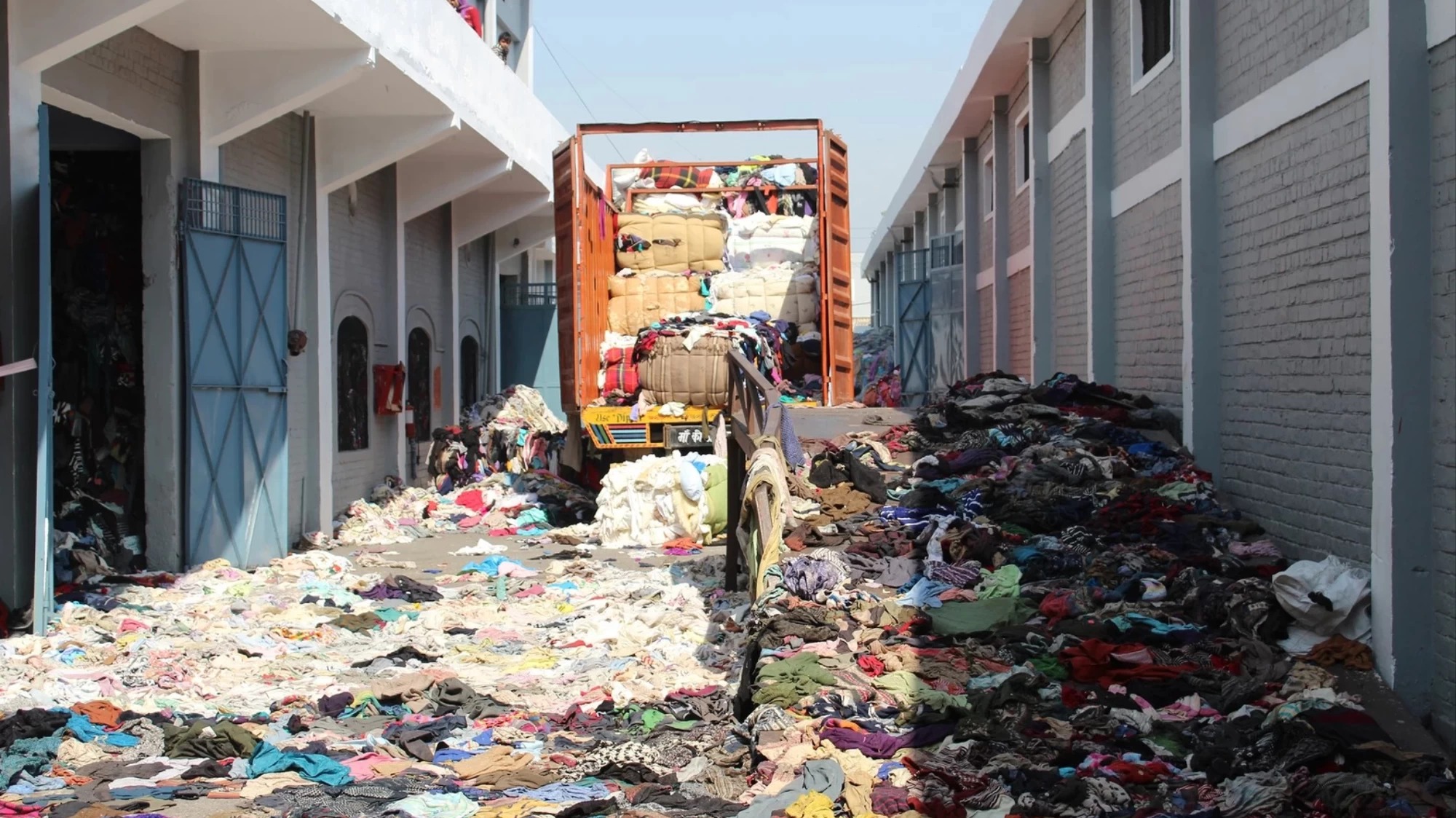It’s no secret that the fashion industry has a sustainability problem. But pressure is mounting and the demand to tackle that problem has at long last become more public. At London Fashion Week climate change activists blocked roads around the capital, asking the British Fashion Council to declare a “climate emergency” to help address the industry’s effects on the environment. Just days before, tens of thousands of young people went on a one day school strike and marched in London to demand more action from the government on the global climate change crisis. Now an inquiry into sustainability in the fashion industry is joining the chorus of voices pressing Theresa May to act.
The Environmental Audit Committee’s Cross Parliamentary hearing on their inquiry into Sustainability of the UK Fashion Industry is calling on the government to make fashion retailers in the UK take responsibility for the waste they create. They are calling for a complete end of the era of throwaway fast fashion. In a report, the cross-parliamentary body said that the voluntary approach has failed, and the time for Theresa May to intervene is now. The report states that with the industry’s current voluntary approach, just 11 fashion retailers – although they didn’t say who – have signed up to reduce their water, waste and carbon footprints. The committee also recommended that compliance with WRAP’s Sustainability Clothing Action Plan targets should be made mandatory for all retailers. The proposal would reward fashion companies that design products with lower environmental impacts and penalise those that do not.
“Fashion shouldn’t cost the earth,” Environmental Audit Committee Chair Mary Creagh MP said in a statement. “Our insatiable appetite for clothes comes with a huge social and environmental price.”
Currently the UK consumes more new clothing than any other European country, according to a press release from The Environmental Audit Committee. And while more and more of us are committed to sustainability, and are aware of the effect fast fashion can have on the environment, fashion consumption is projected to rise yet again. According to the committee’s figures, global apparel consumption is projected to rise by 63% by 2030, equivalent to more than 500 billion additional T-shirts. Around 300,000 tonnes of clothing ends up in household bins every year with around 80% of this incinerated and 20% sent to landfill. To put that in perspective, one kilogram of cotton, equivalent to the weight of a shirt and pair of jeans, can use as much as 10,000-20,000 litres of water to produce. So the contribution to greenhouse gases cannot be overstated.
Increasing a garment’s lifetime is one of the most effective means of reducing its environmental footprint — so that’s exactly what the Environmental Audit system is calling for. It recommended that the government offer incentives for design for recycling, design for disassembly and design for durability. Following the revelation that Burberry incinerated unsold stock worth millions last year, which they have since said they will no longer do, the committee is also calling on the government to ban incineration or landfilling of unsold stock that can be reused or recycled, as well as introducing lessons on designing, creating, mending and repairing clothes should be in the school curriculum. It warned that the fashion industry must come together to set out their blueprint for a net zero emissions world, reducing their carbon consumption back to 1990 levels.
“Fashion retailers must take responsibility for the clothes they produce,” Mary Creagh MP says. “The Government must act to end the era of throwaway fashion by incentivising companies that offer sustainable designs and repair services. Children should be taught the joy of making and mending clothes in school as an antidote to anxiety and the mental health crisis in teenagers. Consumers must play their part by buying less, mending, renting and sharing more.”
